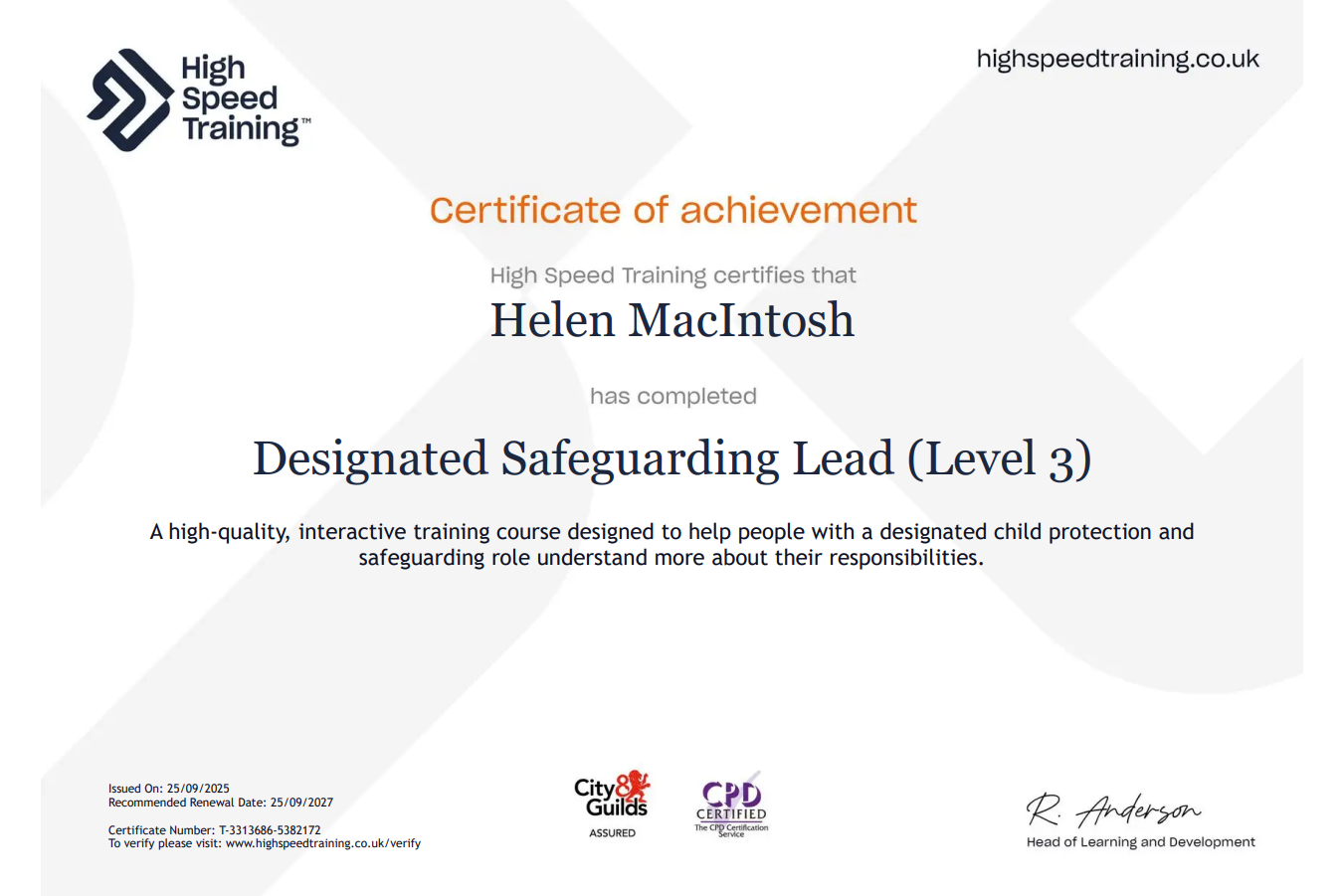Safeguarding and Child Protection Policy (Including Lone Working)

Creative Therapeutic Journeys adheres to the PTUK Safeguarding Policy (2021), this can be found at: https://playtherapy.org.uk/wp-content/uploads/2021/06/PTUK-safeguarding-policy.pdf
Creative Therapeutic Journeys is committed to every child’s right to a childhood free from all forms of abuse and works to ensure the safety and physical and emotional well-being of children.
Creative Therapeutic Journeys takes safeguarding responsibilities seriously and acknowledges obligations under relevant legislation including: the Children’s Act (2004), the General Data Protection Regulation (2018), the Freedom of Information Act (2012), the Health & Safety at Work Act (1974), the Counter-Terrorism & Security Act (2015) and Working Together to Safeguard Children (2018).
The best way to ensure that all children are protected as far as possible, is to work in effective partnership with relevant organisations and parents/carers where appropriate.
Safeguarding & child protection
Safeguarding is the action that is taken to promote the welfare of children and protect them from harm.
Safeguarding means:
- protecting children from abuse and maltreatment
- preventing harm to children’s health or development
- ensuring children grow up with the provision of safe and effective care
- taking action to enable all children and young people to have the best outcomes.
(PTUK Safeguarding Policy, 2021).
For the purpose of this policy, a child is a person under 18 years of age.
Child Abuse and Safeguarding Concerns
All children are vulnerable to abuse. Children with Special Educational Needs or disabilities may be at increased risk and may be less able to communicate their concerns. Child abuse can be physical, sexual, emotional, neglect or a combination of these. For more information see https://www.nspcc.org.uk/what-is-child-abuse/
If I have a safeguarding concern, I will, in the first instance, seek support from my Clinical Supervisor. I have undertaken level 3 DSL training and will follow Nottinghamshire County Council Safeguarding Procedures should I have any safeguarding concerns which require action.

Disclosures or allegations of abuse
During Play therapy, a child may work through difficult issues and past experiences, either verbally or non-verbally. If a child shares information about abuse suffered by themselves or another child they will be listened to seriously and without interruption. No leading questions will be asked and no information suggested.
I will explain to the child what needs to happen next in a way suitable to their age and level of development, in line with what has been outlined in the initial session. A record will be made of what has been shared, as close to the child’s own words as possible, along with the date, time, place and names of those present.
Follow up will be in line with Nottinghamshire County Council Safeguarding Procedures.
Self-Harm/Suicide I aim to be vigilant in recognising and responding to risks of self-harm and suicide, ensuring a collaborative process between client, therapist, and relevant others to mitigate risks.
Recording & information sharing
Any safeguarding concern, disclosure or allegation of abuse will be carefully recorded and stored confidentially in line with Data Protection Protocol. Any safeguarding concern remains confidential and will only be shared with those who need to know. Safeguarding concerns may be shared with parents/carers if appropriate following discussion with Clinical Supervision.
Training
I will renew Safeguarding & Child Protection training regularly, at least every 3 years, In order to remain up to date with all relevant legislation, procedures and emerging safeguarding issues.
Prevent Duty
I have undertaken Prevent Training and uphold British values within the ethos of sessions. I recognise the importance of the need to prevent people from being drawn into terrorism and all forms of non-violent extremism which can create an atmosphere conducive to terrorism (Counter Terrorism & Security Act 2015) as outlined in the Prevent Strategy (2011). I have undertaken Female Genital Mutilation training and I adhere to the mandatory reporting duty introduced in 2015 for known cases of FGM in under 18s.
Whistleblowing
In the instance of witnessing another professional who works with children behaving inappropriately this will be referred to the school/organisation’s DSL and if necessary directly to the Local Safeguarding Partnership or LADO.
Use of mobile phones & cameras
No mobile phones or cameras will be used during Play Therapy sessions except in an emergency situation to contact parents/carers/emergency services. No images will be taken of any child. Digital images of children’s creative work may be taken – these will be stored electronically with no reference to the child, then immediately removed once printed out and stored securely for the child to take away at the end of therapy.
Lone Working
When working in one-to-one sessions with clients, I will ensure mutual safety and wellbeing while maintaining professional and ethical standards of practice.
A risk assessment form will be completed and reviewed regularly.
The client's parent will be nearby at all times and ensure they can be contacted in necessary, returning to the Play Therapy Space.
Emergency contacts will be kept readily accessible.
Any incidents or concerns will be logged securely in Fortuna and shared in Clinical Supervision.
Ethical practice
Creative Therapeutic Journeys adheres to the principles of the Play Therapy UK (PTUK) Ethical Framework. This can be found at: https://playtherapy.org.uk/ethical-framework/
This policy will be reviewed annually: Next review due 07/10/2026